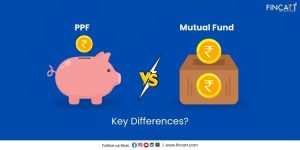Picking the right stocks isn’t easy. You need to dedicate a lot of time and effort, as well as have a good understanding of the market, to select from the thousands of options available. And even after choosing your stocks, you have to keep an eye on them, tweak your portfolio, and make decisions based on market conditions. This type of management is called active investing. But what if you don’t want to do all that? What if you just want to earn market-level returns without constantly being engaged with your investments? Well, then you look for the passive vehicles. Two popular investment options that simply track an index are Index Funds vs. ETFs.
They don’t try to beat the market, and because there’s no active management, the fees are much lower as well. So, how do etf and index funds differ from each other, and which one is better for someone just beginning their investment journey? Let’s answer some questions.
Understanding the Basics
Let’s first understand what are etfs and index funds and how they work.
What are Index Funds?
So, what are index funds? Well, these are a special type of mutual fund, as they are passively managed. Most funds are actively managed, meaning managers use their expertise to pick stocks and time the market in an attempt to beat the index they’re benchmarked against. Index funds do not try to beat a benchmark at all, they simply aim to replicate its performance. For example, let’s say a fund is tracking the NIFTY 50 index. The index fund will invest in all 50 companies that make up the NIFTY 50 and in the same proportion as the benchmark. So if Reliance Industries makes up 10% of the index, then about 10% of the fund’s assets will be invested in Reliance Industries.
There are different kinds of index funds depending on the index they track and the type of securities they invest in. For example:
- NIFTY Next 50 index funds invest in the next 50 companies after the NIFTY 50, so they are slightly more risky but offer higher growth potential.
- Small-cap index funds that track indices such as NIFTY Smallcap 250 and NIFTY Smallcap 100 invest in the shares of smaller companies with lower market capitalisation.
- Sectoral index funds that track specific sectors like banking, IT, or pharma. These are very risky, which is why an investment planner might recommend these only to investors with a long-term horizon and high-risk tolerance.
- Debt or bond index funds that track fixed-income indices, such as the NIFTY SDL Index.
What are ETFs?
ETF stands for Exchange-Traded Funds. Like index funds, ETFs also aim to imitate the performance of specific indices. The main etf funds vs index funds is that ETFs can be traded on stock exchanges.
These investment vehicles work a bit like mutual funds. They pool money from multiple investors to invest in a diversified basket of securities. But when the ETF is first launched, it goes through a New Fund Offer. Once the NFO ends, the ETF gets listed on the stock exchange, and from then on, you can buy or sell it just like a stock using your demat account. You can’t invest directly through the fund house after the NFO as all transactions happen on the stock market.
While they are not as popular as mutual funds, ETFs have been slowly gaining popularity among investors over the last 5-6 years. Now that you know what are ETFs, check out some of the most common types of ETFs available:
- Equity ETFs: These track equity indices like NIFTY 50 or NIFTY Midcap 100. Some ETFs even track international indices such as NASDAQ.
- Debt ETFs: These ETFs invest in government or corporate bonds and track indices such as NIFTY PSU Bank, or SDL Index.
- Commodity ETFs: These track the price of commodities such as gold and silver. When you buy one unit of gold ETF, you’re basically buying the equivalent of one gram of physical gold.
Key Differences Between Index Funds and ETFs
Comparison Table
Here’s a quick look at how index funds vs etfs differ from one another:
| Factor | Index Funds | Exchange-Traded Funds |
| Purchase | Index funds units can be brought directly through the AMC, distributors, or brokers. | Can be bought on stock exchanges. |
| Expense Ratio | Lower than actively managed funds. | Lower than index funds. |
| Total Expenses | Generally only the expense ratio, but some index funds might charge an exit load on early redemptions. | Brokerage charges, STT, and annual demat charges in addition to expense ratio. |
| Minimum Investment | Index fund SIPs can be started with Rs. 500 or Rs. 1000, depending on the AMC. | ETFs are bought at real-time NAV, so at least 1 unit must be purchased. |
| Demat Account Requirement | Not required. | Required. |
| SIP Availability | Yes, investment can be automated with SIPs. | Only a few companies offer ETF SIPs. Investors can manually buy units at regular intervals. |
| Liquidity | Highly liquid. | Not as liquid if trading volumes are low. |
| Time And Effort Required | Low. | Medium. |
In-Depth Analysis of Key Features
Let’s have a more detailed look at the differences between etf funds vs index funds:
Purchase and Trading
You can purchase index funds in a variety of ways: Directly from the AMC, from mutual fund distributors, or from brokerage platforms. This purchase is made at the end-of-day NAV. Index fund units cannot be traded. They can only be redeemed upon submitting a request with the AMC. ETFs, on the other hand, can be purchased and sold on stock exchanges throughout the day at market prices, so they work just like stocks.
Total Expenses
Index funds have slightly higher expense ratios compared to ETFs. However, you’ll also need to pay brokerage fees and STT when buying/selling ETFs. If you trade too frequently, these costs can add up. Usually, exit loads are not a concern for either option, but it’s a good idea to check the fund’s specific terms before investing.
Minimum Investment Required
You can invest in index funds via SIP or lump sum. Monthly SIPs can start from Rs. 500 or Rs. 1000, depending on the AMC. For ETFs, you only need to buy 1 unit, so the minimum investment amount depends on the specific ETF.
Demat Account Requirement
A demat account is not needed to invest in index funds, whereas it is mandatory for ETFs as they are traded like shares.
Taxation
Taxation rules are similar for both options, but there are some key differences depending on the asset allocation of etf and index funds. A tax consultant can help you understand the tax implications of your investments and help you figure out ways to legally reduce your burden.
SIP Availability
One can easily invest in index funds through SIPs. Most ETFs, however, do not offer this facility. That said, as ETFs grow in popularity, some (very few) platforms have started offering a kind of automated investment option for ETFs. These SIPs are usually based on buying a fixed number of units, not investing a fixed amount. For example, you can start a Rs. 5,000 SIP in an index fund, but you can’t use that amount for purchasing ETFs every time because ETF prices fluctuate daily and purchases happen in whole units only.
Liquidity
It’s easy to redeem index fund units, so they offer very high liquidity. ETFs also offer the same benefit, but only if trading volumes are high. Since ETFs are not as prevalent at the moment, you’d be wise to check the average daily trading volume before investing or meet with a financial consultant who can guide you on choosing ETFs.
Similarities Between Index Funds and ETFs
While they have some differences, etf and index funds are quite similar in many areas:
Passive Investments
Both these options track indices, meaning there’s no manager involved who actively selects securities to beat the market. Their returns closely resemble the performance of the underlying index they follow, so they generate no alpha.
Lower Expenses
Both ETFs and index funds come with lower expense ratios compared to actively managed mutual funds due to minimal management involvement.
Diversification
Investing in ETFs and index funds offers instant diversification as they allocate their resources across a wide range of companies within an index.
No Exit Loads
Most ETFs and many index funds do not charge exit loads, so it’s easier to redeem investments without paying extra money. If you want to know more about the specific costs involved with both options, you should consult with an investment service. Various fees can apply such as brokerage charges for ETFs, fund management fees, or taxes like STT and capital gains. A professional can help you understand the cost structure so you can choose the most cost-effective option yourself.
Pros and Cons of Index Funds and ETFs
Let’s consider the advantages and disadvantages of etf funds vs index funds so you can make better decisions:
Pros of Index Funds
- Don’t require a demat account.
- Allow you to invest via SIPs.
- Easy to set up.
- Don’t demand a lot of experience and knowledge from investors.
- Offer very high liquidity.
Cons of Index Funds
- Can’t be traded on exchanges.
- Expense ratios are slightly higher.
- Don’t give you as much control over the exact price at which your transaction happens, as they are only bought or redeemed at the end-of-day NAV.
Pros of ETFs
- Lower expense ratios.
- Can be traded in real-time.
- If you already have a demat account, investing in ETFs can be quick.
- Experienced investors can take advantage of price fluctuations and make a profit in the short term.
Cons of ETFs
- Require a demat account.
- Liquidity is high only if trading volumes are strong.
- Usually, one cannot set up an automatic investment process, like SIPs.
A financial consultant company can assess your financial and risk profiles and recommend which etf and index funds align best with your goals.
Which One is Better for Beginners?
Now that we know what are etfs and index funds differences and similarities, we finally come to the question: Which one should you choose? Well, if you’re a beginner, the most suitable choice for you might just be index funds. Here are some reasons why:
- You can easily invest in index funds via SIPs and contribute a fixed amount at regular intervals. A mutual fund investment planner can help you out in selecting suitable index funds based on your risk profile, financial goals, and investment horizon.
- You don’t need a demat account to invest in index funds.
- Since ETFs are traded on the stock exchange, they demand a bit of knowledge, time, and effort from the investor. Beginners who are not familiar with how demat accounts, trading platforms, or market orders work can find this rough. Index funds allow you to automate the process so you only need to set it up once and then review it regularly.
- Even though ETFs have lower expense ratios, the total costs after including brokerage and STT are similar for etf and index funds.
- Index funds offer very high liquidity. When you need to redeem your investment, the AMC processes your request quickly and credits the money to your bank account within 1 to 2 business days. In ETFs’ case, liquidity depends on market demand and trading volume. If the demand is high, so is the liquidity. But if the ETF has low trading volume, you’ll find it harder to sell your units fast and fairly.
With that said, ETFs aren’t a bad option. They just require a bit more involvement and familiarity with the stock market. For example, if you already have a demat account to trade stocks, investing in ETFs shouldn’t be hard for you. You can buy and sell them during market hours at real-time prices, just like any other stock.
Conclusion
Ultimately, deciding between an etf vs index fund comes down to your personal preferences and financial goals. They have many similarities, such as tracking a specific index, offering diversified exposure, and having lower costs compared to actively managed funds. So, both etf and index funds are excellent tools for passive investing.
But the differences between index funds vs etfs are what will drive your final decision. If you’re looking for a simple, automatic option, index funds would suit you better as you can invest through SIPs without needing a demat account. The entire process is straightforward. However, if you understand how demat accounts and trading works, you can go for ETFs. There may be liquidity risks involved with ETFs as they’re not nearly as popular in India. Check the ETF’s trading volumes to ensure you can buy or sell units easily.
FAQs
Can I invest in ETFs or Index Funds through SIP?
Index funds allow you to invest easily via SIPs. For ETFs, the SIP option is generally not available. Some companies offer an option where you can regularly buy a particular number of ETFs at regular periods, but unlike an SIP where you contribute fixed amounts, your investment amount will depend on the price of 1 EFT.
Which offers better returns for beginners?
Long-term returns for both etf and index funds are similar as they match the returns of the index they’re tracking.
Are ETFs or Index Funds safer?
There isn’t much difference between the risk levels of etf funds vs index funds as they both track an index. There may be some liquidity risk involved with ETFs if the trading volume is low. You should assess the riskiness of the inherent securities within the fund. For example, a small-cap index fund or ETF invests in smaller, less stable companies. While both such funds have similar risk levels, the actual safety depends on what the fund is tracking.
Which has lower fees: ETFs or Index Funds?
As far as low expense ratios go, ETFs come out on top. But once you add Securities Transaction Tax and trading costs, the difference between index funds vs etfs is not as big. If you trade frequently, these extra charges can add up.
Can I automate investments in ETFs?
Automating investments in ETFs is generally not possible, though some companies give you the option to buy a specific number of units regularly. Keep in mind, unlike SIPs, a fixed amount of money doesn’t guarantee a fixed number of units in ETFs since ETF prices fluctuate.




